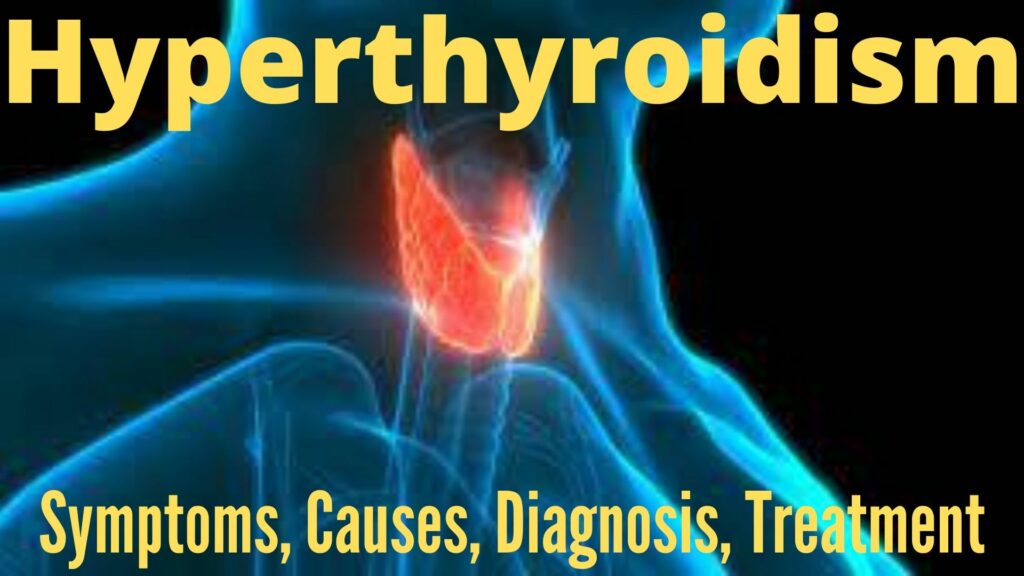Contents
Understanding Hyperthyroidism
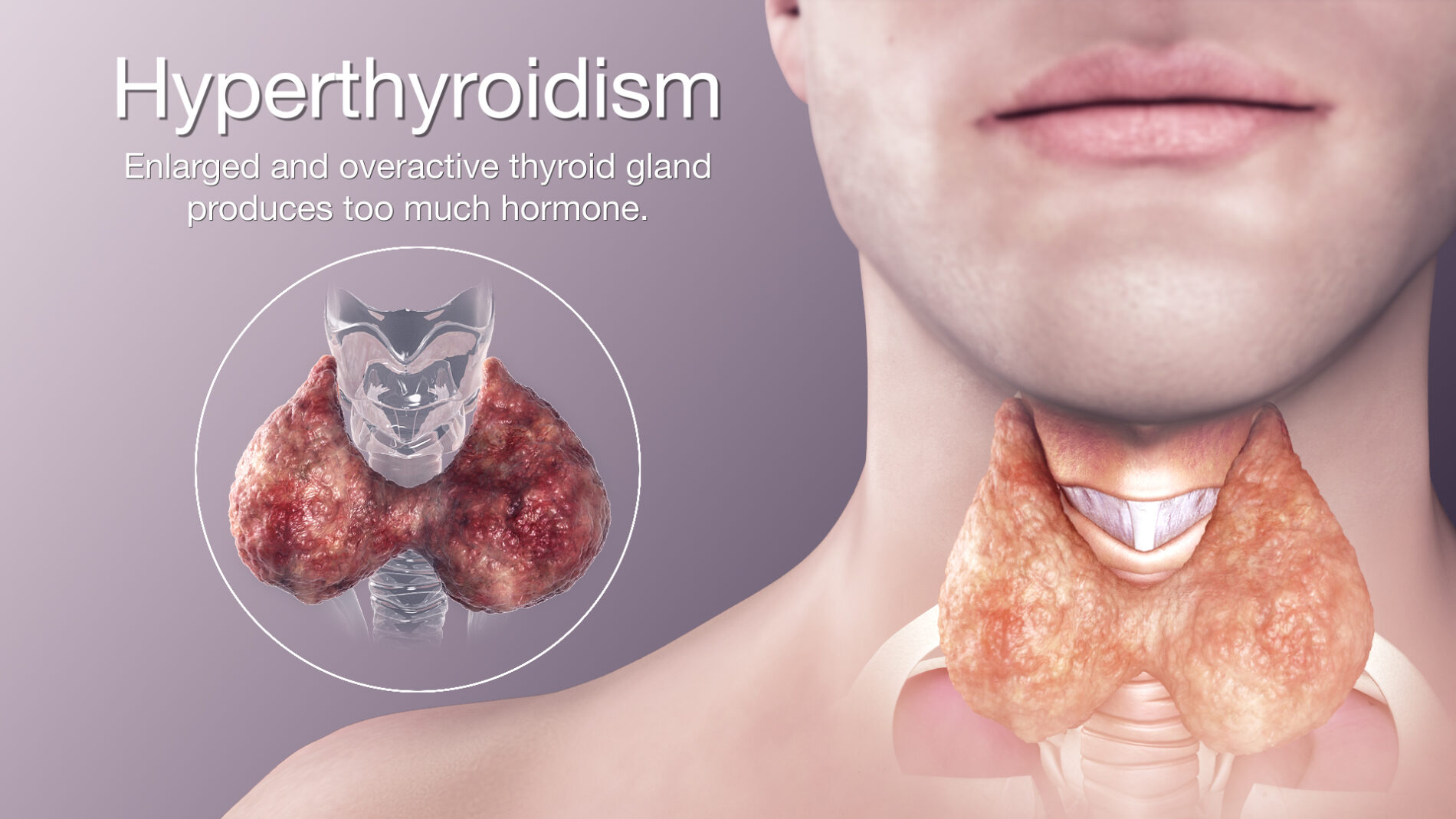
Hyperthyroidism is a condition where the thyroid gland produces too little amount of the hormone thyroxine. This causes many symptoms, from weight loss to rapid pulse and even heart palpitations. Fortunately, with the help of medicines, you can treat this condition and help yourself regulate what your thyroid does. Learn what hyperthyroidism is, what its symptoms are, what causes it, and what treatments are available. You will also learn what people who have hyperthyroidism can do to help themselves by reading more below!
Symptoms Of Hyperthyroidism
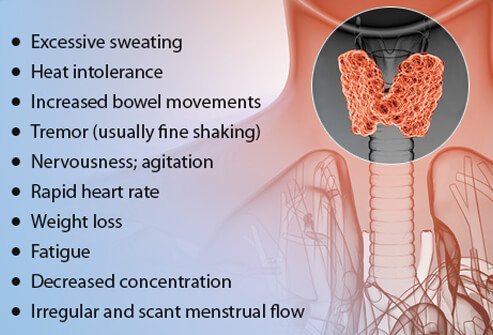
Symptoms of Hyperthyroidism include:
- Increased heart rate (tachycardia) – This is what you might think about when someone says, “My heart races.” It’s what happens to people who are hyperventilating. When their breathing gets too fast, they feel like their hearts are racing out of control. This signifies that a person is very nervous and excited.
- Palpitations (when your heart skips a beat or beats irregularly)
- Anxiety- Hyperthyroidism often causes what doctors call “anxiety.” When people feel anxious, they can get sweaty palms, start to tremble and shake all over, become pale in the face; and their heart begins to beat faster. They have a feeling of being dread and uneasy.
- Weight loss
- Problems in sleeping
- Muscle weakness and fatigue
- Increased bowel movements: In this case, what is happening in the person’s body tries to get rid of all its extra energy by making more trips or visits to the bathroom. This may happen when he/she brings some significant changes in one’s life.
- Bone thinning- This is what causes the bones to become very fragile and it can lead to osteoporosis.
- Hair loss: As a result of hyperthyroidism, what happens is that certain changes begin to take place in one’s body and one begins to lose hair.
- Eye bulging: This is what makes them have very big eyes or what can be described as being wide open all the time.
- Heart-related problems: The heart starts beating faster than one might expect. The person may experience palpitations and chest pain as well.
- Digestive problems: The person will have diarrhea or other stomach-related problems.
- Elevated blood pressure: The patient may experience hypertension or high blood pressure as well. This can cause damage to one’s heart, kidneys, and brain among other things.
Causes Of Hyperthyroidism
Hyperthyroidism can be a result of many diseases and conditions, such as Graves’ Disease and Hashimoto’s Thyroiditis.
These are all the common signs of hyperthyroidism.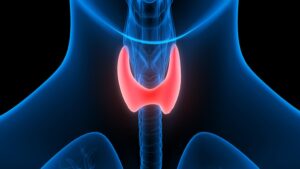
- Tiredness,
- fatigue,
- irritability,
- weight loss despite increased appetite
Women who suffer from this condition may also experience hair loss. Changes in menstrual cycles as well as other physical effects such as tremors or sweating are also common.
Goiters

Hyperthyroidism can also be a result of goiters. This is where the thyroid gland enlarges and becomes hard, usually painless. It may be warm to touch but this does not necessarily mean that there is an urgency of removal. However, you should consult your doctor if there are any symptoms present. These symptoms include discomfort in swallowing or breathing, hoarseness in voice, coughs, and cold symptoms which do not go away.
Graves’ Ophthalmopathy
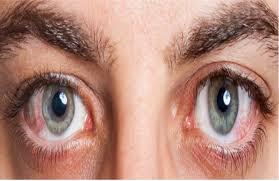
People who have hyperthyroidism may also experience Graves’ ophthalmopathy. This is when the muscles around your eyes become swollen and tense. Your eyes may bulge out of their sockets or they can even turn red as well as become very irritated.
Hyperthyroidism occurs in two ways. Either because the thyroid gland produces too much of a hormone called thyroxine, or because it is producing too little. In either case, hyperthyroidism can cause serious health problems if you do not treat the disease right away.
After Effects Of Hyperthyroidism
People who are suffering from hyperthyroidism might also feel a rapid heart rate. It is when the pulse beats faster than normal. They could have an irregular heartbeat that makes their heart beat faster as compared to the normal pace. The possibility is that it may even skip a beat or two.
Heat Intolerance
Not only can hyperthyroidism affect your body, but it can also cause heat intolerance too. This is when you feel extremely hot at the drop of a hat. It makes this disorder very uncomfortable for many people who have to deal with these symptoms every day.
Rapid Heartbeat
Adding to this, having a rapid heartbeat can also cause palpitations. This means that you might feel like your heart skips beats too. It will be naturally very alarming for people who are experiencing these symptoms day-to-day.
Fine Tremor
With this disorder, there are many other things that go along with it such as a fine tremor. This is a very noticeable shake in their hands. This shakiness can make doing simple tasks like drinking or eating difficult for people who are suffering from the effects of hyperthyroidism.
Exophthalmos
As part of hyperthyroidism, there are also patients who suffer from bulging eyes or exophthalmos. This happens when the muscles of your eyes become weak. It causes them to bulge outwards in a manner that can be quite noticeable for people who are suffering from this condition. This happens especially if they have never experienced it before in their lives or know someone else who has gone through with what you’re experiencing right now.
As part of what causes hyperthyroidism, there are also individuals who don’t have an exact idea of what’s causing them to experience this condition in the first place which can be a really difficult thing for you especially when you think about what your life was like before and after going through with taking these medications or experiencing any other form of treatment.
Diagnosis of Hyperthyroidism
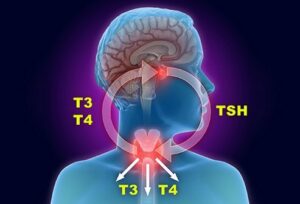
The diagnosis of Hyperthyroidism is usually done by measuring the level of TSH (thyroid-stimulating hormone), which is produced in your pituitary gland and stimulates your thyroid to produce more hormones. It is usually seen that Hyperthyroidism can affect people of all ages, including infants who are born to mothers with an overactive thyroid.
But what many don’t know is that there exist cases where the symptoms do not appear until adulthood and this is called “Silent Thyroiditis” which means patients show no evident symptoms of the disease, but still develop the complications. Hyperthyroidism can be treated with medications or by removing the thyroid gland. It is always important to prevent any future complications. For the same, it is always better to treat Hyperthyroidism disease as soon as the symptoms appear.
Treatment Of Hyperthyroidism

Hyperthyroidism is a medical condition that occurs when there are too many thyroid hormones in your body. The symptoms of hyperthyroidism include restlessness, increased heart rate, weight loss despite an increase in appetite, and muscle weakness to name just a few. Causes for this disease include Graves’ disease, an immune system disorder that results in the overproduction of thyroid hormones (hyperthyroidism). Other possible causes for hyperthyroidism include thyroiditis, an inflammation of your thyroid gland; toxic adenoma, which is a benign growth of the cells in the thyroid that produce too much thyroxine (T-four or T-three); and subacute (de Quervain) thyroiditis.
Variations in the Treatment
Treatment options vary depending on what is causing the disease. If hyperthyroidism occurs with another illness, such as an infection from a parasite or from bacteria, it will be treated in conjunction with that other condition.
- In some cases of Graves’ disease and toxic adenoma, surgery may be necessary to remove all or part of your thyroid gland if the medication does not work well to treat the disease. Hyperthyroidism occurs when your thyroid gland is overactive and releases too much of the hormones thyroxine (T-four or T-three) and triiodothyronine (T-three).
- Symptoms vary depending on what type of hyperthyroidism you have. Symptoms include increased heart rate, insomnia, menstrual changes in women, weight loss despite increased appetite and eating, frequent bowel movements, or diarrhea.
- If you have hyperthyroidism from Graves’ disease your thyroid gland may be enlarged when an ultrasound exam is done.
- In some cases of thyrotoxicosis, The doctors cannot find the cause even after testing for other conditions that could cause it. In such cases, the doctor needs to do what is called a thyroid scan to see what the gland looks like and what it’s doing.
- Treatment may include medications that block thyroid function (antithyroid drugs) or reduce the production of thyroid hormones (radioactive iodine therapy).
- The condition is more common in older women. It can cause a rapid heart rate, anxiety, weight loss, and bulging eyes.
- Your doctor may prescribe medication or surgery to treat this type of hyperthyroidism.
- In addition, what occurs at the time of birth often plays a role. In some cases, babies are born with an overactive thyroid gland.
- Thyroid hormone is crucial in early life since it helps the brain develop properly and it regulates growth and metabolism.
- In some cases, doctors will recommend a medication called propylthiouracil (PTU).
Lifestyle Remedies To Cure Hyperthyroidism
Ways to Live Better When Diagnosed With Hyperthyroidism are:

These are some lifestyle remedies for Hyperthyroidism that can help to treat the condition.
A Word From Mantra Care
Hyperthyroidism is a condition that can be caused by several different factors. Symptoms include rapid heart rate, fever, shortness of breath, and weight loss. Treatments usually depend on what the cause for hyperthyroidism turns out to be. Hyperthyroidism may also lead to goiter (swelling in the neck), and eye problems such as bulging eyes and double vision. Causes of hyperthyroidism include Graves’ disease, inflammation (such as what occurs during thyroiditis), cancerous tumors of the thyroid gland, taking too much thyroxine medication, or suffering from a head injury with swelling in the brain. Some drugs related to hyperthyroidism include amiodarone, lithium carbonate, and the anti-arrhythmia drug propafenone. If you suffer from hyperthyroidism it is necessary to see a doctor immediately.
Hyperthyroidism can occur in both men and women of any age but usually affects people between their late 20s and early 50s. Women are nine times more likely to get hyperthyroidism than men.
